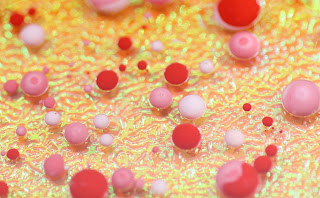Is the alkaline diet the best for weight loss?
I’m kicking off the new year with a new post continuing the
debunking of popular weight loss diets. I thought this would fit nicely for
January as people often say, ‘new year, new me’ and may be more likely to try a
new diet.
The last diet I debunked is the detox diet, find it here.
Let’s jump right in…
What is the alkaline diet?
The alkaline diet says that by managing your body’s pH levels and keeping your body alkaline, you’ll be able to lose weight, fight disease, have more energy, and be healthier.
To give you a better understanding, here’s a quick run through of pH. pH is a measure of how acidic or alkaline something is. It’s a scale from 0 – 14, with 6 or less being acidic, 7 being neutral, and 8 or more being alkaline. An example of something acidic would be lemon juice, which has a pH of 2.5. Water is neutral at a pH of 7. An alkaline substance would be baking soda, with a pH of 9.
So, the alkaline diet says that you have maintain your body
at this higher pH and you do this by avoiding foods that are ‘acid producing’,
to focus on alkaline foods instead.
- Foods allowed or ‘alkaline foods’: fruit, vegetables, nuts and seeds, tofu, beans, and legumes.
- Foods allowed that are ‘neutral’: natural fats e.g., olive oil
- Foods not allowed or ‘acidic foods’: meat, fish, eggs, dairy, grains, alcohol, caffeine
What’s wrong with the alkaline diet?
There are many things wrong with the alkaline diet. I’m
going to start with the pretty big one, in that what you eat can’t actually
change your body’s pH levels.
It’s not based in scientific fact:
The alkaline diet doesn’t make much sense when you realise
that the food you eat doesn’t change your pH. Our pH levels in the blood are
tightly controlled between 7.35 and 7.45. If our pH levels were even slightly
out of this range, it would mean a trip to the hospital.
Your blood pH being too low or too high can lead to
headaches, shortness of breath, an increased heart rate, nausea, confusion,
seizures, diarrhoea, and fatigue. If your pH is very out of range, it can cause
a coma. It can’t be altered by food, and if it could be, we’d be in trouble.
The alkaline diet also doesn’t consider the fact that our stomachs
are naturally acidic. Our stomach acid is between 1.5 to 2 on the pH scale. So
even if we do eat only alkaline foods, the first thing they’ll face is the acid
in the stomach. This acidic stomach is one of our barriers against infections
as it aims to kill any harmful bacteria/virus we may accidentally eat.
The only thing that does have a little merit, is that what
you eat can affect the pH of your wee. So, if you eat a more ‘alkaline’ diet,
i.e., lots of fruit and veg, your pee is more likely to be slightly alkaline.
The same goes for if you eat more acidic foods like meat, your wee will be slightly
more acidic. This is one of the ways your body controls the pH of your blood.
Your urine pH does fluctuate during the day, and it tends to
be more alkaline after meals anyway, so I’m not sure this really shows any
support for the alkaline diet.
It doesn’t make any sense to follow an alkaline diet as it
won’t change your blood pH and your stomach is naturally acidic anyway.
It’s highly restrictive:
An obvious negative is that the diet is highly restrictive.
All you’re allowed to eat is fruit, veg, and legumes essentially. I’m not sure
how long you're meant to be on the diet for, but it’s highly unachievable no
matter the time frame. It being so restrictive makes it hard to follow, and you
might not be able to stick to it.
I also can’t see how you’re meant to meet your daily energy
needs on foods that are so low in calories, which, again makes it hard to stick
to as you’ll likely be left unsatisfied after eating. Fruit, veg, and legumes
are great but it’s repetitive and limited. You could just minimise your acidic
food intake instead of completely avoiding them and this would give you a bit
more leeway. It’s not clear how strict you need to be in order to get the
alkaline 'benefits'.
And as I always say when looking at weight loss diets, any extreme restriction can increase your chances of binge eating. When you restrict food so much, it makes you want it more. So, if you do break your diet, you may feel out of control and end up eating large amounts of food at once. This can then lead to you feeling worse afterwards and so you restrict yourself again. This binge restrict cycle can repeat itself for long periods of time.
There's no evidence it can prevent disease:
Another claimed benefit of the alkaline diet is that it can
reduce your risk of diseases like cancer or heart disease. The idea is that
disease can only occur when your body is in an acidic state and that diseases perform
better when you're acidic.
I want to make it clear that diet can have an impact on your
health risks. For example, we know that an increased consumption of processed
meat can increase your risk of bowel cancer. But this is not the same as
following an alkaline diet to rid yourself of disease. There’s no evidence to
show it works like that.
The idea that the alkaline diet stops cancer is due to the fact that cancer cells create an acidic environment around them. This acidic environment around the tumour can drive the progression of the cancer. So, the theory is if you have an alkaline diet and make your body alkaline, the tumour won't like it and it'll stop the cancer growth.
Unfortunately, it’s not that simple. There's no research that shows
changing the pH of your diet will then affect the pH of your body or the cancer
cells. And the acidic environment is created by the cancer cells, it’s not an
acidic environment that creates cancer.
Some people also think that an alkaline diet supports your
bone health. The idea behind this is that, if you eat an acidic diet your body
will pull calcium from your bones in order to neutralise the excess acid. This
removal of calcium from your bones will then make them weaker. But there’s no
direct evidence to show that an acidic diet weakens your bones. So, it’s simply
not true.
There’s just no proof that the alkaline diet prevents
disease, so it’s not worth it.
It could lead to nutrient deficiencies:
My final negative point about the alkaline diet is that it
can increase your risk of nutrient deficiencies. As it’s so highly restrictive
and encourages you to severely limit certain food groups, there’s lots of nutrients
you could be missing out on.
Protein is the first one that came to mind when looking at
this diet. Yes, the diet allows plant based sources of protein like legumes and
nuts. But by avoiding animal products, and grains it does mean you’ll have to
be very careful with what you eat to ensure you're getting enough protein.
Lacking in calcium is also a risk with this diet. Dairy
products like milk and cheese are great sources of calcium that’s easy for your
body to absorb, but they're on the no-no list. You can obtain calcium from
green leafy vegetables and nuts but it’s harder for your body to absorb plant
based sources of calcium.
Vitamin B12 is only found in animal products, so it’s
another nutrient you’d be missing out on. If someone was vegetarian or vegan,
they could obtain B12 from fortified foods like cereals, but cereals and grains
aren’t allowed on this diet, so you’ve got nowhere to turn to.
I’d also be concerned about someone lacking in iron, zinc, and
iodine.
I’ve spent a lot of time talking about the negatives of the
diet, but I thought I’d look at positives too.
Positives of the alkaline diet:
Increased fruit and veg intake:
The only benefit I can think of for the alkaline diet is
that it promotes an increased intake of fruit, vegetables, and nuts/seeds while minimising
ultra processed foods. I can’t dispute the fact that fruit and veg are crucial
to good health, and it’s not a bad thing to increase how much you’re eating.
Limiting ultra processed foods and alcohol can also positively impact your
health and reduce the risk of health conditions like a stroke or type 2
diabetes.
Having said this, you don’t need to only eat fruits,
vegetables, and legumes to have this benefit. Increasing the amount you eat
within a healthy balanced diet will do just fine.
Will the alkaline diet lead to weight loss?
I alluded to this earlier, but yes, the alkaline diet will
lead to weight loss. This is because fruit, vegetables and legumes are low in
calories and if you lower your calorie intake, you’ll lose weight. The weight
loss isn’t specific to this diet, you would lose weight with a calorie deficit
obtained from any type of dietary restriction.
The amount of weight you lose would depend on what exactly
you’re eating each day. And the weight staying off is another story. With the
diet being so restrictive you might not be able to maintain it for long and so
go back to your old style of eating. This means any weight lost will come back
on again.
Overall, the alkaline diet is not based in scientific fact
and has no basis for any of the claims it makes. You can’t change your pH with
food and eating alkaline foods won't stop disease. You are likely to lose
weight when following it, but this is due to the calorie deficit and not the
contents of the diet. Of course, increasing fruit and vegetables in your diet
is great, but you can do that without the alkaline diet.
Key points:
- The alkaline diet says that eating mainly alkaline foods (fruit, vegetables, legumes) and avoiding acidic foods (meat, dairy, grains) will help you lose weight, feel energised, and lower your risk for diseases like cancer.
- You can’t change the pH of your body through food, and your stomach is naturally acidic.
- There is no evidence that the alkaline diet will reduce your risk of disease or stop diseases in their tracks. It could also lead to nutrient deficiencies due to the extreme restriction.
- Any highly restrictive diet is hard to maintain and could increase your chances of binge eating.
- The alkaline diet does promote having more fruit and vegetables which is a good thing, but it doesn’t have to be the only thing you eat.
- The alkaline diet will lead to weight loss due to the foods you're allowed being low in calories, but it’s not sustainable and any weight lost will likely come back on.
I’d love to hear your thoughts below.
Bye for now 👋
References:
https://www.dietitianuk.co.uk/binge-restrict-cycle-how-to-break-it/
https://www.ncbi.nlm.nih.gov/pmc/articles/PMC8321841/
https://www.ncbi.nlm.nih.gov/pmc/articles/PMC7352839/
https://pubmed.ncbi.nlm.nih.gov/30474102/

.jpg)





.jpg)

Comments
Post a Comment